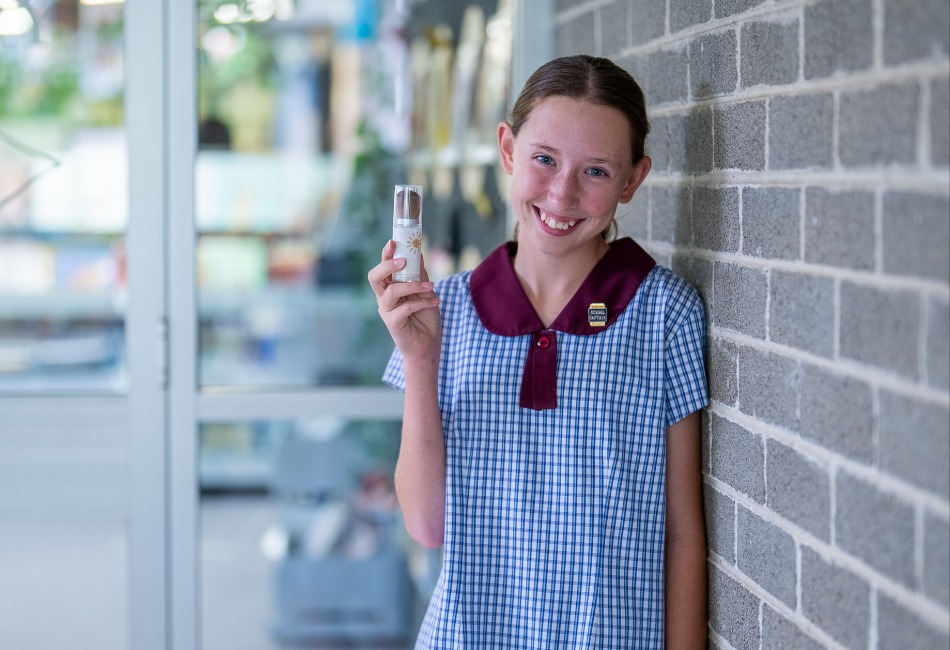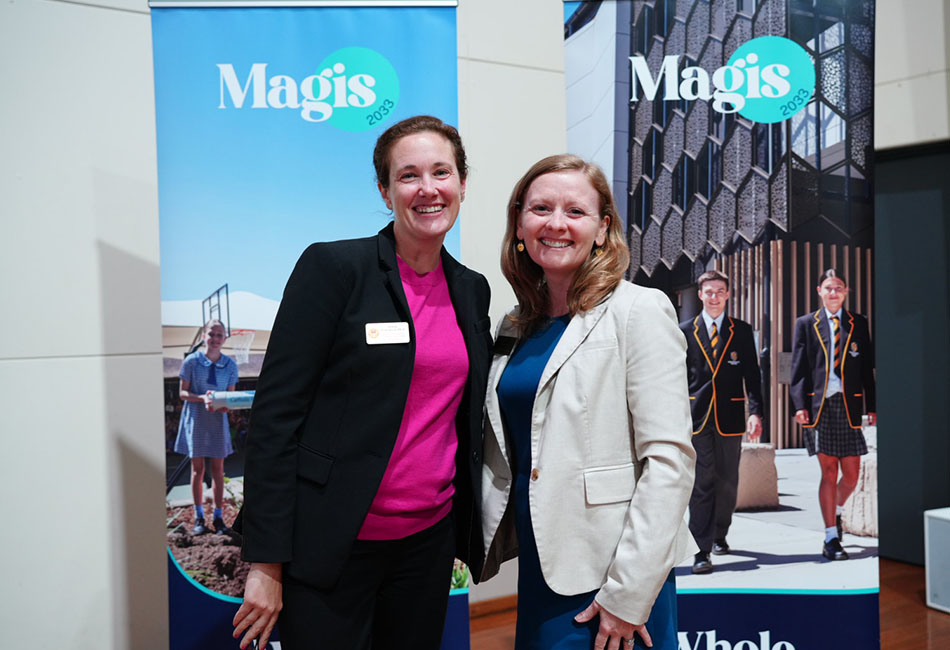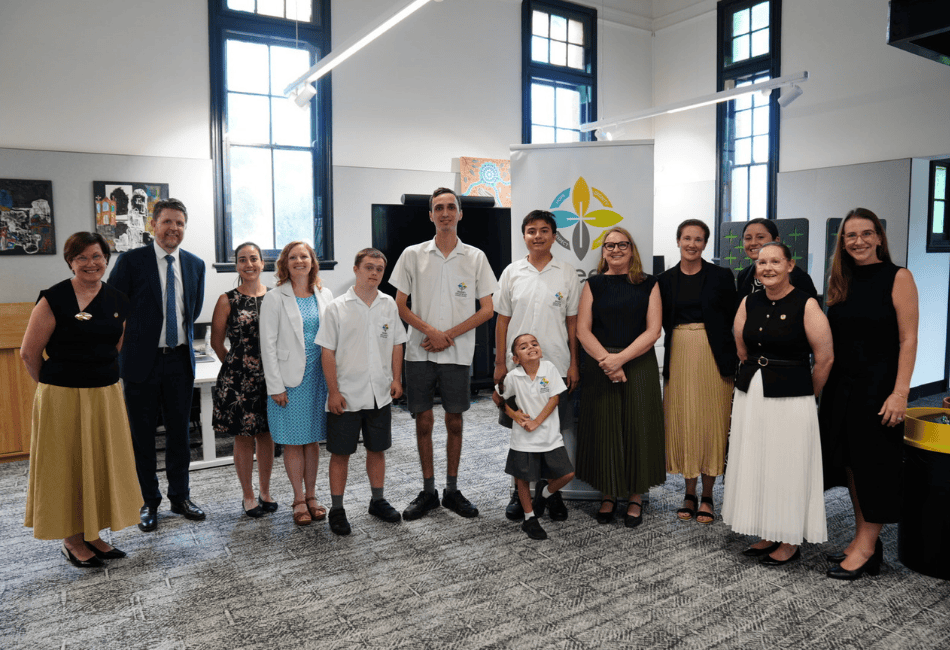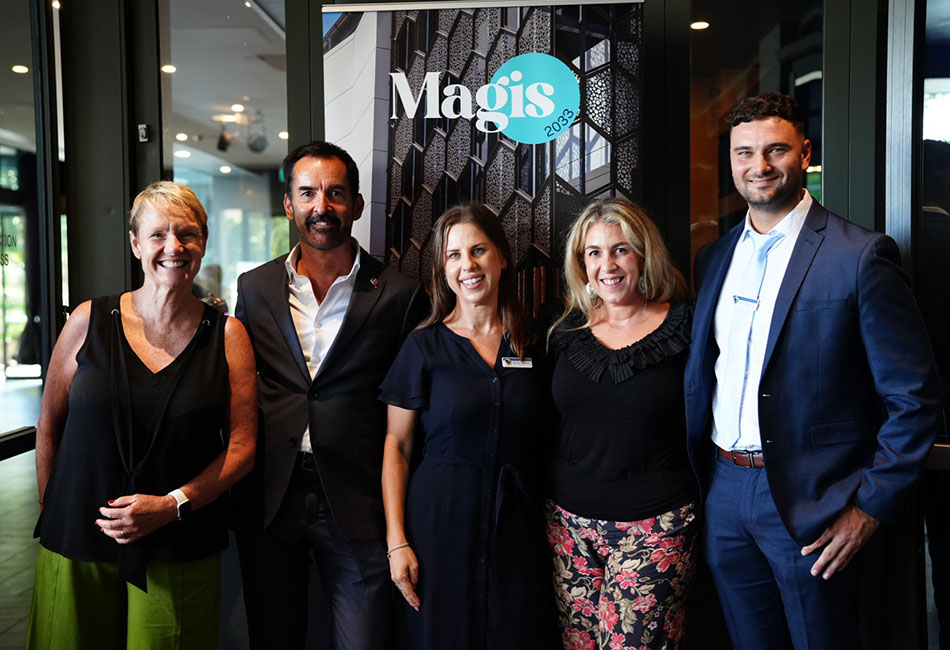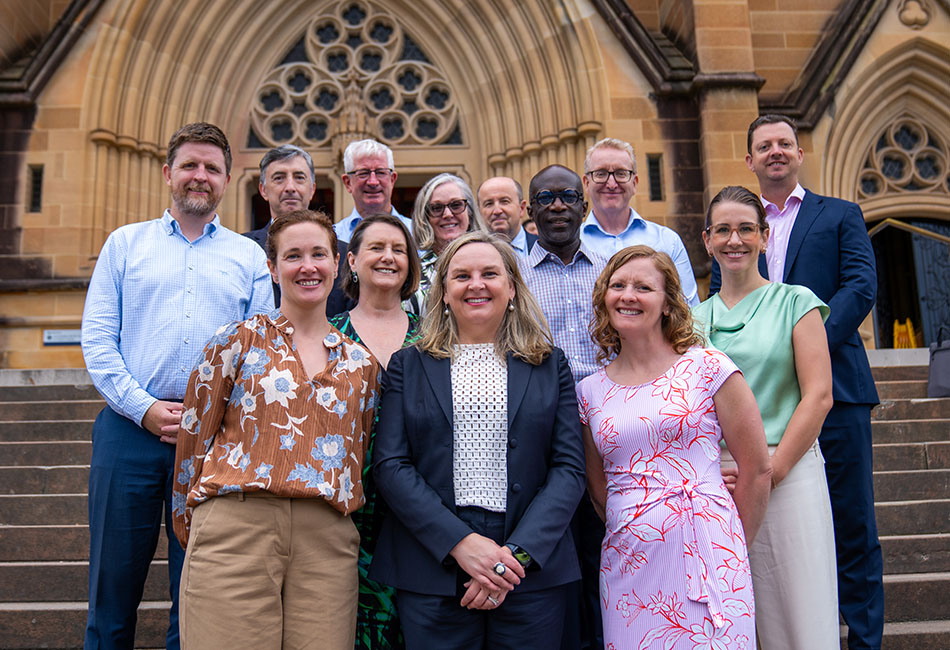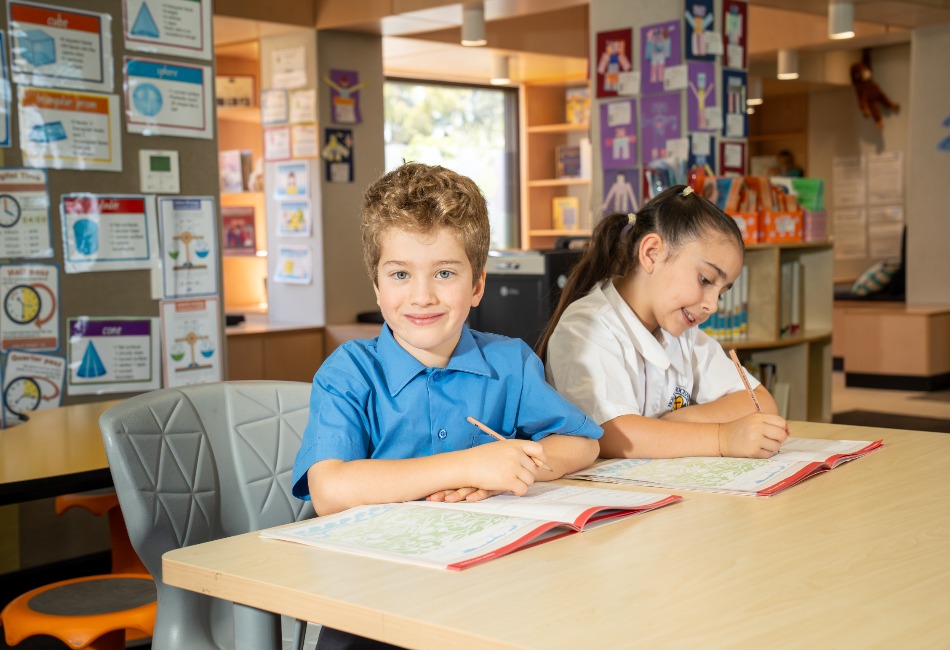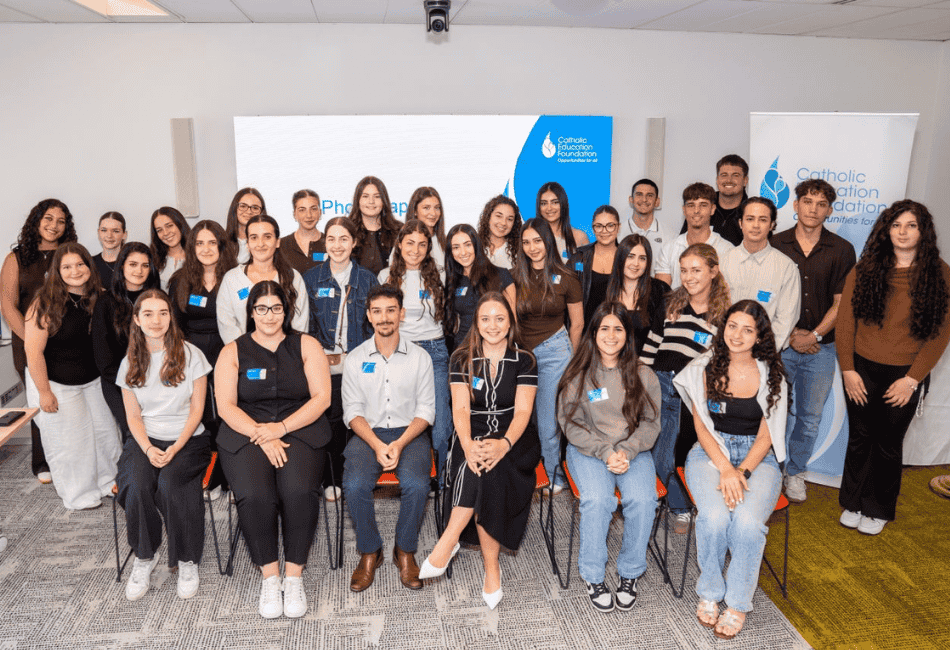Whether you are pondering how to stay sun and heat safe this summer, help injured wildlife, or alleviate shoulder pain, these STEM MAD National innovations of 2023 created by students at Sydney Catholic Schools have answers.
The competition asks Catholic primary and secondary school students across Australia to apply Science, Technology, Engineering and Mathematics principles and Gospel values to identify and solve a real-world problem.
Each of the projects below also draws on research, ingenuity, and the United Nations Sustainable Development Goals to create a measurable positive impact on personal and environmental health.
The Sun Brush
The creator: Lilah Brock, Holy Family Catholic Primary School Menai
Sustainability goals: 3 – Good health and wellbeing, 13 – Climate action
Lilah’s Sun Brush is a sunscreen applicator designed to be quick and easy to use and helpful for children with sensory issues. Engineering and mathematics were strong in her work, with a prototype brush made of hard plastic and soft pony hair.
Lilah received the Best Application of Maths in Context Award – Primary for her project which involved calculating how many millilitres of sunscreen the Sun Brush could hold.
She was also a finalist in the Best Innovation for Health Award.
Lilah said about 15,000 people get skin cancer in Australia each year, a statistic which inspired her invention.
“When I went to the beach I saw so many people sunburnt or really red,” she said.
“I thought to myself ‘why are people not wearing sunscreen?’”
“We surveyed our local community and found most people would prefer using a brush applicator for sunscreen.” – Lilah Brock
“It spreads and rubs into skin easily and without any hassle.”
Baby heat monitor
The creator: Oscar Murray, St Brendan’s Catholic Primary School Annandale
Sustainability goal: 3 – Good health and wellbeing
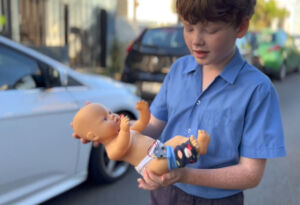 Oscar designed a baby heat monitor to help parents know when a car’s interior is too hot for an infant to safely be in it.
Oscar designed a baby heat monitor to help parents know when a car’s interior is too hot for an infant to safely be in it.
Oscar, who now attends St Mary’s Cathedral College Sydney, said that in the past 25 years globally more than 1,000 children have died after being left unattended in a sweltering car.
His device is made to be worn like a sock on an infant’s foot and triggers an alarm kept with the parent or carer once the child’s temperature reaches just below 40 degrees, a level consistent with hyperthermia.
“When a child is left unattended in a car they can go into hyperthermia. This can cause kidney failure or even death,” Oscar said in a video for his project.
“On a typical summer’s day, 75 per cent of the temperature rise occurs within five minutes of closing the car door. This can reach around 50 degrees celsius.”
Comfort and safety were part of his sock-with-sensor design which includes two coded and calibrated micro:bits to register the temperature and sound the alarm. It won the 2023 STEM MAD National competition’s Artful Ingenuity Design Award – Primary in November.
Oscar said his life-saving prototype could also be adapted for pet collars.
Biomechanics strap
The creators: Ava Azemi, Olivia Jayatunga, Audrey Yan and Isabel Susanto, Our Lady of the Sacred Heart College Kensington
Sustainability goal: 3 – Good health and wellbeing
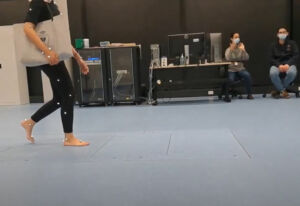 Ava, Olivia, Audrey, and Isabel designed an adjustable ‘biomechanics strap’ with a shoulder pad to improve the comfort of the school tote bags their peers use, and reduce potential musculoskeletal pain. The product also aims to minimise textile waste as it is made with recycled fabrics.
Ava, Olivia, Audrey, and Isabel designed an adjustable ‘biomechanics strap’ with a shoulder pad to improve the comfort of the school tote bags their peers use, and reduce potential musculoskeletal pain. The product also aims to minimise textile waste as it is made with recycled fabrics.
They tested their prototype in a biomechanics lab at The University of Sydney. It won the Best Assistive Device Award – Secondary.
“We conducted posture and load distribution analysis using pressure-plate technology on the ground we walked on,” team members explained in their video submission.
“The strap length improved the load distribution slightly and reduced postural asymmetry. As the width of the strap increased there was less pressure and the bag was felt to be lighter.”
Plastics recycling & stewardship
The creators: Angelina, Charlotte and Isabelle, Mount St Joseph Milperra
Sustainability goals: 11 – Sustainable cities and communities, 12 – Responsible consumption and production, 15 – Life on land
Angelina, Charlotte and Isabelle took their school’s year-long focus on improved sustainability a step further with their STEM MAD project, using recycled plastic from milk bottles to build crates to transport injured wildlife from roadsides.
The team’s presentation highlighted a solution to the volume of plastic waste produced in Australia – more than 76 million tonnes in the past three years.
Their invention won the competition’s SEAM (Social Enterprise Asset Management) STEM for Sustainability Award.
“Seeing the amount of plastic waste produced by our community, we were faced with a problem: how could we use [it] to create new innovative materials that would make a difference?” Angelina said.
“We are constantly inspired and driven by our Josephite charism, and school values.”
Excellence and ingenuity sustained
The inventions above signal back-to-back STEM MAD success for Sydney Catholic Schools with two – St Aloysius Catholic Primary school Cronulla and St Clare’s College Waverley – receiving two of the same awards among their four wins in 2022.
SCS schools have retained the crown for Best Application of Maths in Context – Primary and SEAM – STEM for Sustainability categories of the awards.
St Aloysius students won the first in 2022 for their sensor app, while a St Clare’s student received the SEAM – STEM for Sustainability award for the Carbon Carpool Co.

